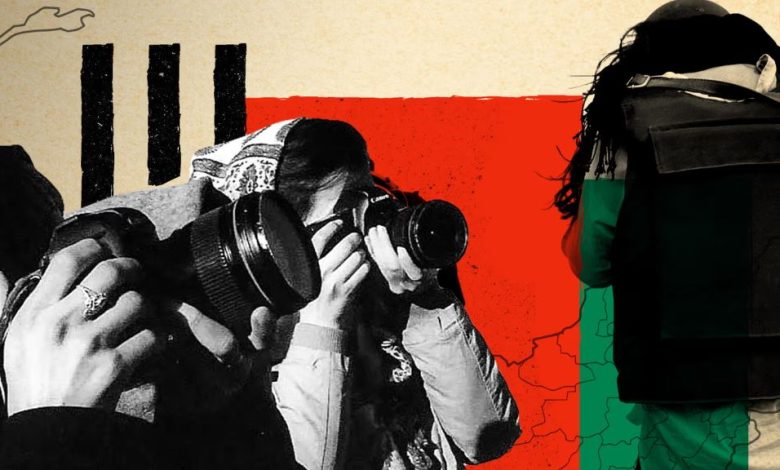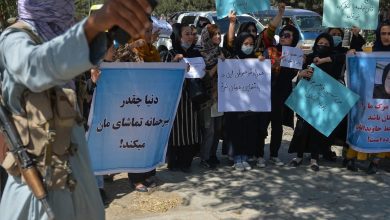
Journalists and the State of Media in Afghanistan
Sayed Mahdi Hussaini
Bayan News – In the past two weeks, numerous reports have been published about the detention of journalists in Afghanistan by the forces of the Islamic Emirate, indicating that approximately ten local journalists have been arrested.
The detention of these journalists has been confirmed by officials of the interim government, who have stated that some of these journalists have been detained on charges of collaborating with foreign media outlets that disseminate content contrary to the values of the Islamic Emirate.
Simultaneously, Zabihullah Mujahid, the spokesperson for the Islamic Emirate, recently told the media that the cases of these journalists are being discussed and investigated by relevant authorities, and after going through the necessary procedures, these journalists have been detained.
Meanwhile, Muhajir Farahi, the Minister of Information and Culture, recently stated that the government supports media outlets that reflect the realities of Afghanistan. However, he emphasized that they would not allow anyone to distort public perception and prevent media outlets from disseminating content that contradicts Islamic values and national interests.
At the same time, with the imposition of restrictions on Afghan media outlets, journalists have faced financial, social, and security challenges in their reporting activities, with women journalists being particularly vulnerable.
In the past two years, 95% of female journalists have lost their jobs, and the restrictions on the work of journalists and the decrease in the presence of female journalists in the media have resulted in Afghanistan dropping 34 places in the global press freedom rankings, according to the Reporters Without Borders organization. It currently ranks 156th on their list.
In these circumstances, female journalists face numerous difficulties and if these restrictions are not lifted, many of them may abandon their duties.
Kubra (pseudonym), one of the female journalists, told Bayan News: “The Islamic Emirate has imposed many limitations on us journalists. Information dissemination has become very difficult for us. Female journalists cannot produce reports as they used to and lack motivation for finding newsworthy subjects.”
She stressed that female journalists are struggling with many challenges at present, and if these restrictions are not removed, many of them may resign from their positions. Additionally, the economic problem is one of the major issues affecting journalists, with the majority of them being vulnerable in this regard.
Kubra requested the Islamic Emirate to support journalists, prevent arbitrary detentions of journalists, and urged relevant organizations to address this issue through legal channels.
On the other hand, Zarin (pseudonym), another female journalist, spoke about the challenges faced by journalists, saying, “The situation of female journalists is evident to everyone. They were the most vulnerable group during the past two years of developments, resulting in many female journalists being inactive since most media outlets lack the budget to employ female journalists.”
She added, “In the current situation, journalism comes with its own difficulties. Female journalists have no freedom to produce reports, and everyone is under some form of stress. If they produce critical reports about authorities or the government, they are afraid of facing trouble. Consequently, reports reflecting the realities of today’s society are not prepared accurately.”
Another journalist is committed to the process of information dissemination for the people of Afghanistan and has continued to do so thus far. He tells Bayan News, “I have been continuing my work in journalism since the beginning of the transition, overcoming the challenges I face and persevering day and night to achieve success in this field.”
He addresses other female journalists, stating that journalism in Afghanistan is not an easy task and they must adapt to their current challenges.
However, officials from some supporting institutions for journalists say that relevant organizations have made efforts to support journalists, especially female journalists, and have had discussions with officials from the Ministry of Information and Culture.
Bashir Hatif, the deputy of the Media Institutions Federation, expressed concern over journalists’ lack of access to information and added that despite the efforts of media supporting institutions, the Islamic Emirate does not consider government spokespersons obligated to respond to journalists.
According to Hatif, another reason that has created numerous obstacles in journalists’ path is the inactive Information Access Commission, which has not yet started its activities.
He emphasized that discussions between media supporting institutions and officials of the Islamic Emirate in this regard are ongoing, and efforts are being made to compel government spokespersons to respond to journalists.







